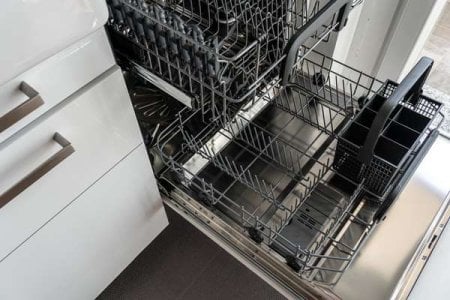Federal Court exposes top brands for misleading claims on 'premium' dishwashing tablets
Manufacturers are constantly competing to give you the lowest prices and the best products—so much so that the boundaries of what counts as honest marketing get blurred.
In a surprising twist, two leading brands in the Australian dishwashing tablet industry have been found guilty of misleading consumers with unproven scientific claims about their premium products.
The Federal Court has ruled that Procter & Gamble (P&G) and Reckitt Benckiser, also known as RB (Hygiene Home), violated Consumer Law by suggesting their high-end products were superior to others in their range.
Procter & Gamble, the manufacturer of 30-Minute Miracle and Fairy dishwashing tablets, was found to have engaged in misleading conduct, making representations that could easily give consumers the wrong impression.
Similarly, RB was found guilty of the same offence with its Finish Ultimate Plus tablets.
Justice David Yates found that Procter & Gamble’s Miracle tablets performed no better at cleaning than the company’s Fairy range in a 30-minute wash.
Comparably, there was no meaningful difference between RB’s Finish Ultimate Plus and Finish Ultimate Pro.
The judgment, published on Thursday, November 30, highlighted the highly competitive nature of the market, with consumers heavily influenced first by price and second by performance claims about the efficacy of products.
The P&G Miracle tablets, which had a different formula and a significantly higher price per tablet than Fairy Platinum Plus, were launched in March. The packaging noted its performance claim was compared with Fairy tablets.
‘What is significant is that the statement is in very small font. For practical purposes, it is inconspicuous,’ the ruling read.
Meanwhile, RB launched its Finish Ultimate Plus tablets in March, explaining its new 'cyclesync optimised release technology' on its packaging.
But Judge Yates claimed, ‘The information is printed in extremely small font and is extremely difficult to read.’
Independent lab testing was conducted on Finish Ultimate Plus, Finish Ultimate Pro, Miracle, Fairy Platinum Plus and Fairy Platinum. The only statistically significant difference found was attributable to water hardness and only for tea stains.
RB had represented Finish Ultimate Plus as superior to all its other dishwashing tablets.
The judge will hear from the parties again on final forms of injunctive relief but indicated both companies will need to design new packaging and refrain from representing their premium-tier products as being any better at cleaning 'when there is no adequate foundation in scientific knowledge for that claim'.
Understanding the Dishwashing Tablet Market
The dishwashing tablet market is fiercely competitive, with brands constantly vying for consumer attention and loyalty. In such a market, it's not uncommon for companies to make bold claims about their products to stand out from the crowd. However, as this case shows, these claims must be backed by scientific evidence.
The Australian Competition and Consumer Commission (ACCC) has strict guidelines about product claims. Companies are not allowed to make false or misleading claims about their products. This includes claims about the performance, benefits, price, quality, or origin of a product.
For consumers, this case serves as a reminder to be sceptical of marketing claims and to do their research before making a purchase.

Have you tried any of these products, members? Did you notice any differences? Share your experiences in the comments below.
In a surprising twist, two leading brands in the Australian dishwashing tablet industry have been found guilty of misleading consumers with unproven scientific claims about their premium products.
The Federal Court has ruled that Procter & Gamble (P&G) and Reckitt Benckiser, also known as RB (Hygiene Home), violated Consumer Law by suggesting their high-end products were superior to others in their range.
Procter & Gamble, the manufacturer of 30-Minute Miracle and Fairy dishwashing tablets, was found to have engaged in misleading conduct, making representations that could easily give consumers the wrong impression.
Similarly, RB was found guilty of the same offence with its Finish Ultimate Plus tablets.
Justice David Yates found that Procter & Gamble’s Miracle tablets performed no better at cleaning than the company’s Fairy range in a 30-minute wash.
Comparably, there was no meaningful difference between RB’s Finish Ultimate Plus and Finish Ultimate Pro.
The judgment, published on Thursday, November 30, highlighted the highly competitive nature of the market, with consumers heavily influenced first by price and second by performance claims about the efficacy of products.
The P&G Miracle tablets, which had a different formula and a significantly higher price per tablet than Fairy Platinum Plus, were launched in March. The packaging noted its performance claim was compared with Fairy tablets.
‘What is significant is that the statement is in very small font. For practical purposes, it is inconspicuous,’ the ruling read.
Meanwhile, RB launched its Finish Ultimate Plus tablets in March, explaining its new 'cyclesync optimised release technology' on its packaging.
But Judge Yates claimed, ‘The information is printed in extremely small font and is extremely difficult to read.’
Independent lab testing was conducted on Finish Ultimate Plus, Finish Ultimate Pro, Miracle, Fairy Platinum Plus and Fairy Platinum. The only statistically significant difference found was attributable to water hardness and only for tea stains.
RB had represented Finish Ultimate Plus as superior to all its other dishwashing tablets.
The judge will hear from the parties again on final forms of injunctive relief but indicated both companies will need to design new packaging and refrain from representing their premium-tier products as being any better at cleaning 'when there is no adequate foundation in scientific knowledge for that claim'.
Understanding the Dishwashing Tablet Market
The dishwashing tablet market is fiercely competitive, with brands constantly vying for consumer attention and loyalty. In such a market, it's not uncommon for companies to make bold claims about their products to stand out from the crowd. However, as this case shows, these claims must be backed by scientific evidence.
The Australian Competition and Consumer Commission (ACCC) has strict guidelines about product claims. Companies are not allowed to make false or misleading claims about their products. This includes claims about the performance, benefits, price, quality, or origin of a product.
For consumers, this case serves as a reminder to be sceptical of marketing claims and to do their research before making a purchase.
Key Takeaways
- Procter & Gamble and Reckitt Benckiser have been found guilty by the federal court of providing misleading information about their dishwashing tablets.
- The court stated that Procter & Gamble's Miracle tablets were not more effective at cleaning than the company's Fairy range, and there was no significant difference between Reckitt Benckiser's Finish Ultimate Plus and Finish Ultimate Pro tablets.
- The judgement highlighted that both brands used incredibly small fonts to detail their claims on packaging, which many consumers would overlook.
- The court has recommended that both companies design new packaging and refrain from making claims about their products being superior without scientific evidence to support these.
Have you tried any of these products, members? Did you notice any differences? Share your experiences in the comments below.








